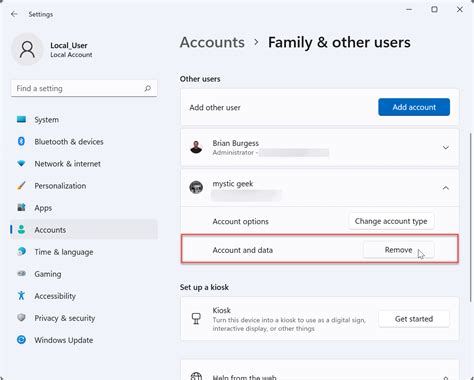In a bold, yet controversial, move, Microsoft has quietly removed the documentation for switching to a local account in their latest operating system, Windows 11. This decision has reignited conversations about user autonomy, corporate control, and regulatory oversights in the tech industry. The convenience of a Microsoft account, while offering seamless cloud integration and cross-device synchronization, carves a stark line between user freedom and corporate advantage.
The change is reminiscent of a ‘bait and switch’ tactic, aggravating users who feel misled. One user lamented that toothless regulators are incapable of reining in Big Tech’s overreach, hinting that Microsoft’s actions should be met with substantial fines to deter such practices in the future. The sentiment is clear: transparency and freedom are non-negotiable for a significant portion of the user base. In an age where privacy and data sovereignty are increasingly paramount, Microsoft’s decision could be seen as a step back from user-centric values.
The debate about whether government intervention is necessary surfaced prominently. Some opine that enforcing offline setup options through legislation might be overbearing, potentially stifling innovation and flexibility within tech companies. However, others argue that minimalistic regulatory measures, like mandating local accounts, protect consumer rights without stifling business incentives. The proposal that Microsoft should sell Windows LTSC (Long-Term Servicing Channel) to the general public, not just to enterprise clients, provides a middle ground. Such a move would keep power in the hands of the user, allowing choice without coercion.
Interestingly, the ethical dimension of this issue touches on deeper societal impacts. In a digital world, operating systems are not just tools but gateways to essential services. The idea that users should have fundamental rights to own and control the tools they rely on daily gained traction. The argument is simple: if vital services require digital access, the access itself must be equitable and unintrusive. This perspective critiques not just the tech giants but also governments that fall short in protecting digital rights.
The ripple effects of this decision are profound. Users with specific needs—like gamers, developers, and professionals dependent on Windows-specific applications—face a crossroads. Shifting to alternatives like Linux or macOS is on the agenda for many, despite the switching costs, both financial and in terms of learning curve. The compatibility conundrum with high-end gaming, professional software suites, and legacy applications underlines the friction in transitioning to alternative platforms. Yet, the evolving ecosystem around Linux, notably with gaming through Steam’s Proton, signifies a rising tide of change.
The decision has broader implications for Microsoft’s competitive position. Once the de facto standard for desktops, Microsoft’s increasing ‘enshittification’ as some users describe it, could erode its market dominance. Competitors like Apple and various Linux distributions might gain ground as users rebel against intrusive design changes. While Microsoft has areas like Azure and enterprise services to fall back on, user alienation could see consumer segments slipping away over time.
In conclusion, Microsoft’s removal of the documentation for switching to a local account in Windows 11 is more than a minor technical detail—it’s a flashpoint in the ongoing struggle between corporate control and consumer rights. The debate highlights the fragile balance between innovation and regulation, convenience and autonomy. As users grapple with these changes, the tech industry is reminded, yet again, that user trust, once lost, is challenging to regain.


Leave a Reply